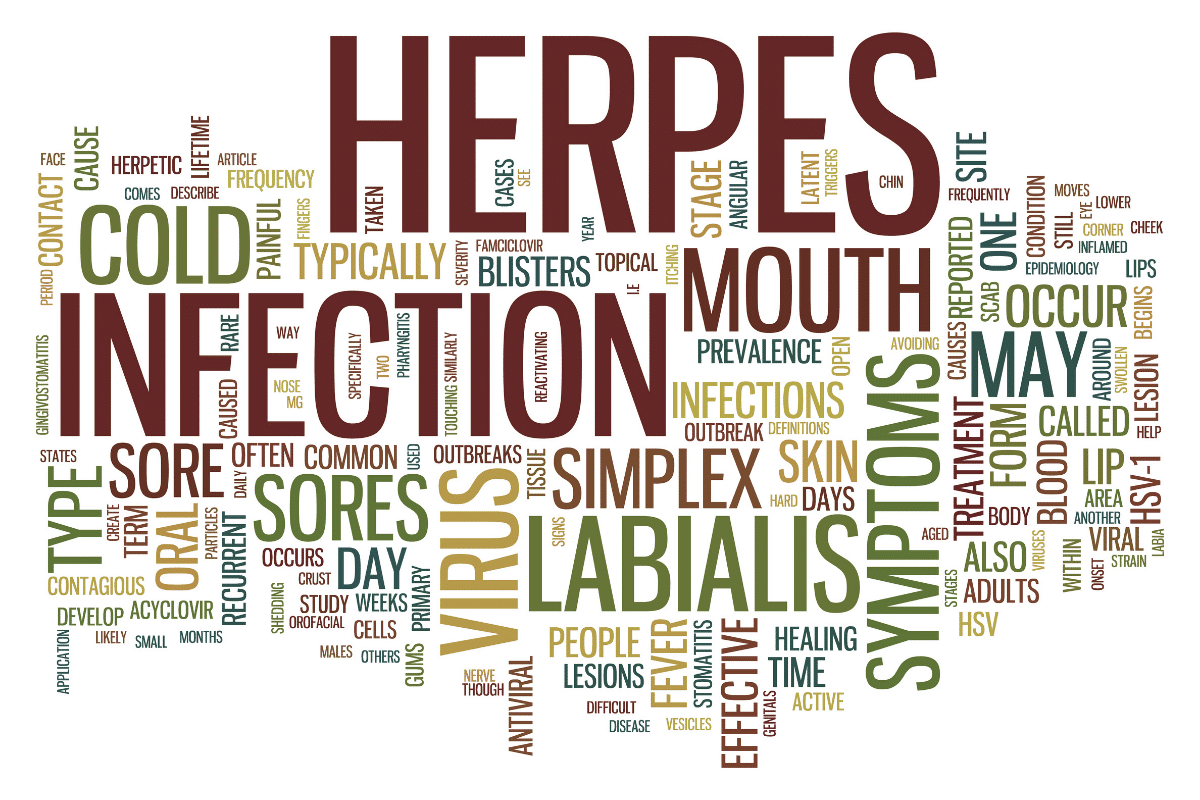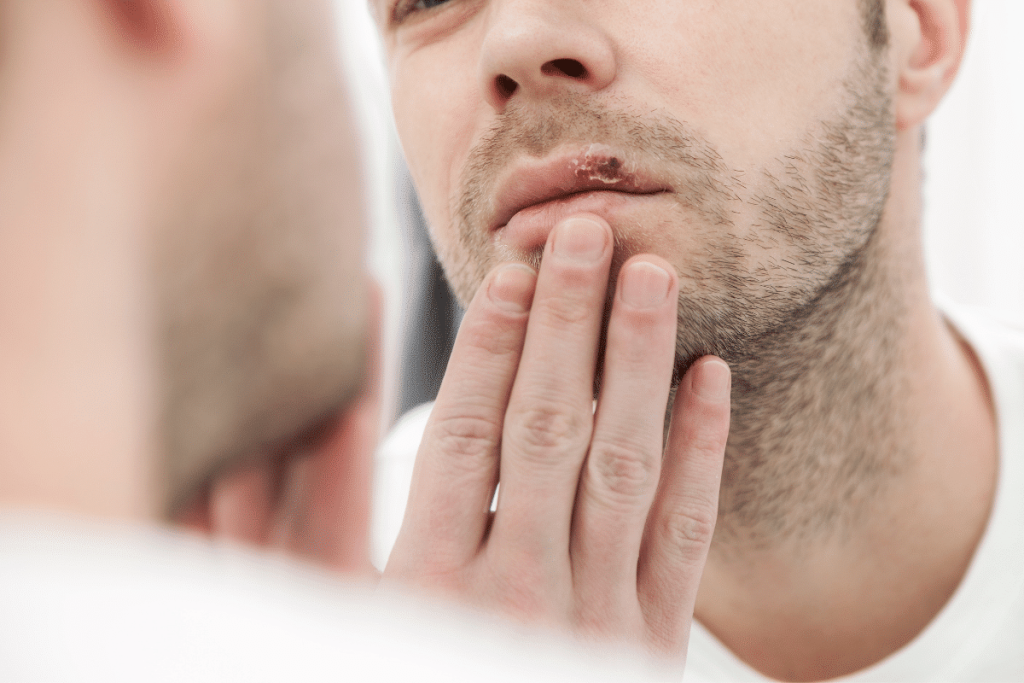Another common sexually transmitted infection is herpes, which is caused by the herpes simplex virus (HSV). There are two types of this virus, namely HSV-1 and HSV-2. HSV-1 generally causes cold sores, while HSV-2 usually causes genital herpes. Herpes can spread through vaginal, anal, and oral sex.
What are the symptoms of herpes?
Most of the time, people will not know they have herpes because symptoms may not be noticeable. Oral herpes, which is usually caused by HSV-1, may cause cold sores or fever blisters around the mouth.
These blisters may appear a couple of months or even years following an infection. It is possible to mistake herpes sores with other skin conditions that are not related to any sexually transmitted diseases.
If symptoms do not occur, this does not mean that the asymptomatic carrier may not be able to transmit the infection to other sexual partners. Therefore, it is important u to get tested regularly.t. Other symptoms that may be related to herpes include:
- Blisters or open sores around mouth, genitals, anus, thighs or bottom
- Burning or itching sensation around the genitals
- Painful urination
- Vaginal discharge that occurs abnormally with blisters and sores
When someone is infected with HSV, they may experience an outbreak. A person may experience blisters around the mouth, genitals, or rectum that break and leave painful sores. It may take several days or even weeks before sores disappear. People may experience several follow-up outbreaks throughout their life.

How do I get HSV?
HSV infections may occur after vaginal, anal, or oral sex with someone who has herpes. The risk is even higher when protection, such as condoms or dental dams, is not used.
A person may have herpes, but not know their status, as the infection may not show any symptoms.
How do I avoid getting herpes?
If you are sexually active, ensure that you and your sexual partner(s) get tested regularly in order to confirm your status.
If you choose to have multiple sexual partners, wearing condoms whenever you have sex (including oral sex, you can also wear dental dam when performing oral sex) will reduce the risks of getting herpes.However, while condoms lower the risks of getting HSV, such method does not ensure 100% protection. This is due to the fact that herpes sores can also appear in areas that condoms do not cover.
Can HSV be cured?
Unfortunately, there is no cure for this infection and there are no vaccines available to prevent the virus from entering the body. Thankfully, however, there are treatments that are available in order to either prevent or reduce the length of an outbreak. While the infection will remain in your body, you can lower the risk of having an outbreak and/or spreading the infection to your partner as long as you take the medicine daily as prescribed.
The good news is that HSV is not deadly and generally does not cause any serious complications. If prescribed, it is important to take the medicine appropriately. While herpes outbreaks can be unpleasant and painful, it usually happens more infrequently over time and can even disappear completely.

